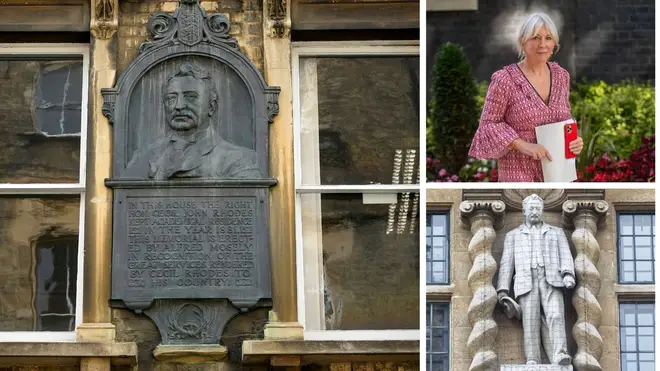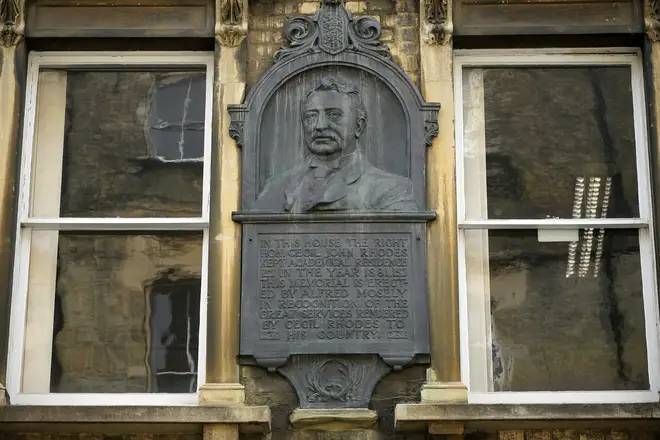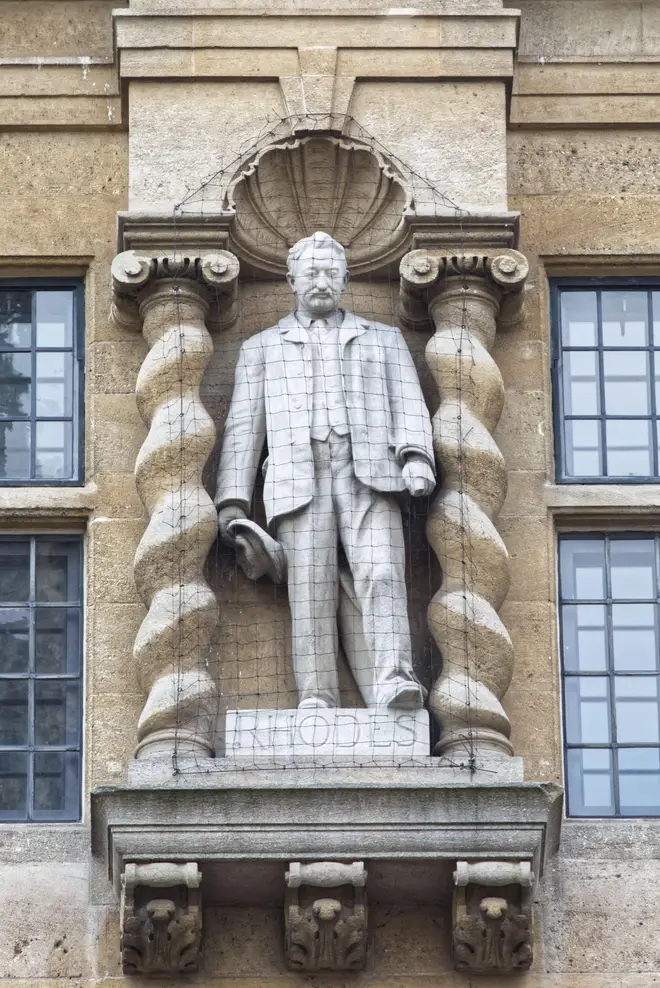
Iain Dale 7pm - 10pm
29 July 2022, 14:25

Nadine Dorries has stepped in to ensure the safety of a plaque commemorating imperialist Cecil Rhodes - even though it is near a statue that sparked protests.
The monument, which says it was erected to recognise "the great services rendered by Cecil Rhodes", stands at Oriel College within the University of Oxford and is near the statue that sparked years of protests by the Rhodes Must Fall campaign.
It has been given listed status by the government despite campaigners proclaiming Rhodes was steeped in colonialism, racism and represented white supremacy.
The plaque, by Onslow Whiting, has been in place since 1906 and was paid for by Sir Alfred Mosely, a Hatton Garden diamond merchant.
Historic England previously said the plaque, which stands in King Edward Street, on the building named after Rhodes at the college, did not merit legal protection.


But the Department for Culture Media and Sport (DCMS) said culture secretary Nadine Dorries felt it to be of "special historic interest".
Rhodes, a 19th century merchant and politician in southern Africa, was a student at Oriel and left the college £100,000 when he died in 1902.
Read More: Colston Four say 'we rectified history' as they're cleared over statue toppling
Read More: Margaret Thatcher statue attack blamed on 'misogyny' by feminist campaigner
In June, DCMS said Ms Dorries was "minded" to give the plaque listed status because of its "special and architectural and historic interest." and it has since been officially given Grade II listed status by the culture secretary.
A DCMS spokesman said: "We are committed to retaining and explaining our heritage so people can examine all parts of Britain's history and understand our shared past."